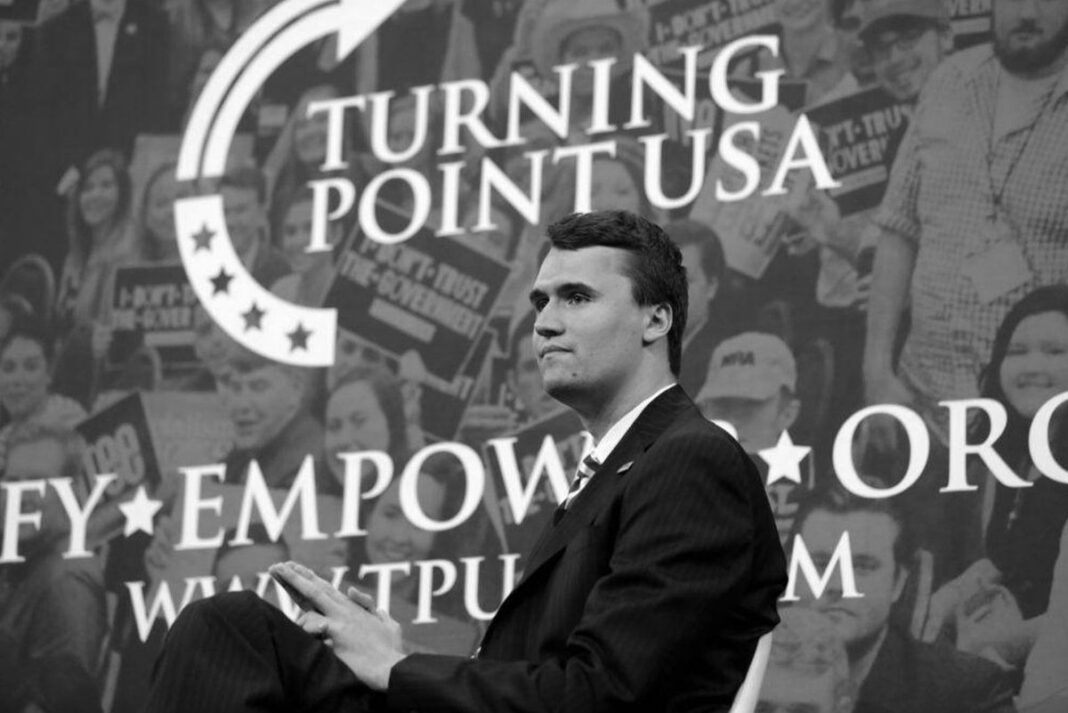The United States was plunged into shock yesterday as news broke that Charlie Kirk, the conservative activist and founder of Turning Point USA, had been fatally shot while addressing students at Utah Valley University in Orem. Kirk, who had built a reputation as one of the loudest voices of the American right, was in the middle of his “American Comeback Tour” when tragedy struck. Eyewitnesses recall that he was speaking at the “Prove Me Wrong” table, a signature feature of his campus engagements, when a bullet tore through the air and struck him in the neck. He was rushed to a hospital in critical condition, but doctors could not save him. He died at just 31 years old, leaving behind a political movement that had grown from a fledgling idea into one of the most influential conservative platforms for young Americans.
The attack is already being treated as a targeted killing. Investigators say the shot came from a building a significant distance from the stage, raising questions about the planning that went into the assault. Two individuals were initially detained but later released, and authorities now say they have identified a person of interest. What remains unclear is the motive, but the fallout has already begun to reshape the American political and social landscape.

The White House has moved swiftly in response. President Donald Trump has ordered all U.S. flags on federal buildings, military posts and embassies to be flown at half staff until sunset on September 14 in Kirk’s honor. In addition, Trump announced that Kirk would be awarded the Presidential Medal of Freedom posthumously, the highest civilian honor in the land. The decision underscores the scale of influence Kirk wielded in Republican politics, where he was not only seen as an activist but as a cultural force shaping the future of conservatism among young voters.
The government response has not stopped at ceremonial gestures. Deputy Secretary of State Christopher Landau has warned that foreign nationals who mock or celebrate Kirk’s death online may face consequences, including visa cancellations and bans. The warning marks a rare instance of the U.S. government directly linking online speech abroad to immigration policy, and it has ignited debate over how far such policies can or should go. Critics argue that it treads dangerously close to punishing free expression, while supporters insist that celebrating an act of political violence crosses a line that must not be tolerated.
Kirk’s death has drawn condemnation from across the political divide. Republican lawmakers have called it an attack on free speech and democracy, while Democrats, many of whom often clashed with his rhetoric, have nonetheless described the killing as a senseless act of violence that must be universally condemned. Security analysts are already asking difficult questions about the adequacy of protection for high profile political figures who travel frequently to open campuses and town halls where access is not as tightly controlled as it might be for sitting government officials.
The tragedy also shines a light on Kirk’s remarkable yet controversial journey. Born in 1993, he co founded Turning Point USA at the age of 18, building it into a multi million dollar organization that organized conferences, media campaigns, and grassroots activism. He was known for his combative debating style, his fierce loyalty to conservative principles, and his ability to connect with young audiences who felt alienated by mainstream politics. Through appearances on Fox News, podcasts, and nationwide tours, Kirk became both admired and reviled, a man who inspired devotion from supporters and sharp criticism from opponents. That polarizing reputation is part of why his death has resonated so deeply and sparked such a wide range of reactions.
The broader context cannot be ignored. America has witnessed a growing climate of political hostility, with heated rhetoric spilling over into acts of violence in recent years. The attack on Kirk will inevitably be seen through that lens, as both a reflection of the volatility of the times and a warning about what unchecked divisions can lead to. For many conservatives, Kirk’s death will be treated as martyrdom, the silencing of a voice that symbolized their fight against what they see as cultural and political decline. For others, it is a moment that should prompt sober reflection on how toxic political discourse has become.
On social media, tributes are pouring in by the minute, with hashtags in his memory trending worldwide. At the same time, there are corners of the internet where users are mocking his death, and it is those responses that prompted the government’s stern warning. The battle over how Kirk is remembered has already begun, and it is one that will stretch far beyond the borders of the United States.
Charlie Kirk’s story ended violently and tragically on a campus stage in Utah, but his legacy and the controversies that came with it will not fade quickly. His death has triggered mourning, anger, political maneuvering, and even international implications. In life, he was a lightning rod for attention and debate. In death, he has become a symbol of the times: divided, passionate, and uncertain about what comes next.
Samuel Aina

